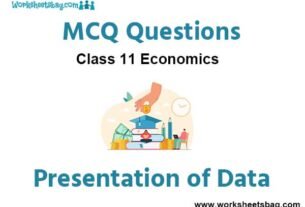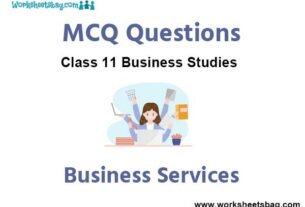Please refer to Bills of Exchange MCQ Questions Class 11 Accountancy below. These MCQ questions for Class 11 Accountancy with answers have been designed as per the latest NCERT, CBSE books, and syllabus issued for the current academic year. These objective questions for Bills of Exchange will help you to prepare for the exams and get more marks.
Bills of Exchange MCQ Questions Class 11 Accountancy
Please see solved MCQ Questions for Bills of Exchange in Class 11 Accountancy. All questions and answers have been prepared by expert faculty of standard 11 based on the latest examination guidelines.
MCQ Questions Class 11 Accountancy Bills of Exchange
Question. Bills receivable account is a:
(a) Nominal account
(b) Personal account
(c) Real account
Answer
C
Question. At the time of endorsement of a bill, the drawee debits:
(a) Bills payable account
(b) Other party ’s account
(c) No entry
Answer
C
Question. When noting charges are paid by the bank at the time of dishonour of the bill and the drawee credits:
(a) Bank account
(b) Noting charges account
(c) Neither of the two
Answer
C
Question. The due date of bill dated 31st January, 1992 for a period of 1 month will be: (year 1992 is a leap year)
(a) 1 st October, 1993
(b) 31 st January, 1992
(c) 31st January, 1993
(d) 3rd March, 1992
Answer
D
Question. What shall be the due date of bill dated 21st July, 1993 for a period of 60 days when 22nd September, 1993 is declared as emergency holiday?
(a) 21 st September, 1993
(b) 22nd September, 1993
(c) 23rd September, 1993
(d) None of these
Answer
C
Fill in the blanks with suitable word(s)
Question. The person to whom the amount mentioned in the promissory is payable is known as _______
Answer : Promisee
Question. In a promissory note, the person who makes the promise to pay is called as ……………..
Answer : Promissor
Question. A bill of exchange is a …………….. instrument.
Answer : negotiable
Question. A promissory note is drawn by ………………. in favour of his …………………
Answer : debtor, creditor
Question. There are ………………… parties to a promissory note.
Answer : two
Question. Bill of exchange in Indian language is called ……………..
Answer : Hundi
Write ‘True’ or ‘False’ against each statement regarding a bill of exchange
Question. A bill of exchange must be accepted by the payee.
Answer
False
Question. A bill of exchange is drawn for all cash transaction.
Answer
False
Question. A person to whom payment is to be made in a bill or exchange is called payee.
Answer
True
Question. The hundi payable at sight is called Darshani hundi.
Answer
False
Question. Stamping of promissory note is not mandatory.
Answer
False


